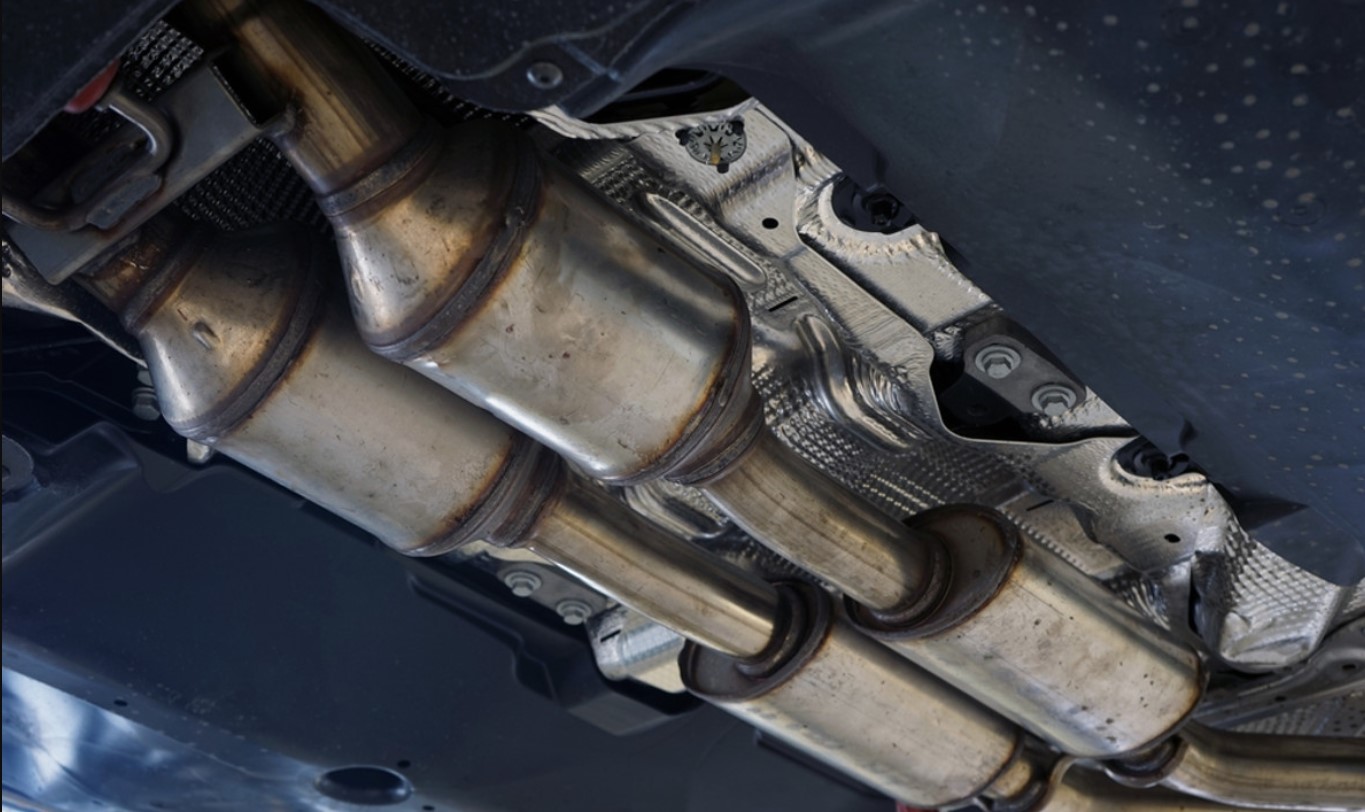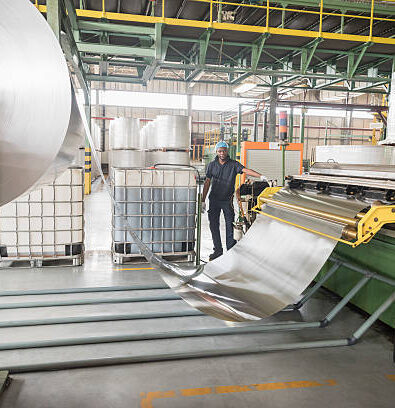Inside the rising theft of catalytic converters

Story highlight
- Catalytic converter thefts are rising in Lagos, causing significant inconvenience and expense for vehicle owners.
- Experts recommend understanding vehicle basics, monitoring the check engine light, and using diagnostic tools to prevent theft.
- Trustworthy mechanics, found through referrals, can help ensure the safety of catalytic converters.
Israel Ola, a driver transporting kegs of palm oil across Lagos markets, experienced a troubling incident illustrating the rise in catalytic converter thefts.
When his truck broke down at Iyana Oba, far from his Ikorodu home, he left it at a nearby mechanic shop for almost 24 hours. After retrieving his truck, he soon noticed a loud noise at high speeds.
Concerned, Ola took his truck to his usual mechanic in Ikorodu, who discovered the catalytic converter was missing.
This theft, which likely occurred while the truck was at the unfamiliar shop, highlights the growing problem of catalytic converter thefts at Lagos mechanic shops, causing significant inconvenience and expense to vehicle owners.
What are catalytic converters?
Catalytic converters are essential components of vehicles, typically located directly after the exhaust manifold or further down the exhaust system in larger vehicles.
Depending on the make of the car, a vehicle may have one or two catalytic converters. These parts contain precious metals like platinum, palladium, and rhodium, which facilitate chemical reactions that convert toxic gases into less harmful ones.
By reducing exhaust backpressure, catalytic converters improve engine efficiency, leading to better fuel economy and lower fuel consumption. They also transform pollutants such as carbon monoxide, hydrocarbons, and nitrogen oxides into safer compounds, thereby reducing vehicle emissions.
Are mechanics the main culprits behind catalytic converter thefts in Lagos?
While Ola, the driver, was confident that his truck’s catalytic converter was stolen at the mechanic workshop, Nairametrics sought opinions on whether only mechanics are responsible for such thefts, given the technical expertise required to remove the part.
Mr. Olatunde, a part-time mechanic in Lagos, admitted that some mechanics do steal parts from unsuspecting clients but emphasized that the majority do not engage in such practices. He explained that unscrupulous mechanics, motivated by greed, remove catalytic converters to sell them to car part sellers at lower prices.
Dennis Emmanuel, another mechanic, noted that theft is less likely in well-organized auto shops with thorough vetting processes. He pointed out that car part theft is more common in workshops lacking proper staff vetting.
Barrister Sunday MacNathan, a private car owner in Lagos, shared his experience with his Mazda CX-9, which he bought used (“Tokunbo”) from the United States two years ago. After a year of use, he noticed increased fuel consumption and a louder engine noise. His trusted mechanic discovered that the catalytic converter was missing and suggested it had likely been replaced with an iron sponge by the vehicle’s importer, as some importers do this to cut costs.
“Earlier this year, I noticed my two-year-old Mazda CX-9, bought as a US tokunbo, had increasing fuel consumption and a louder engine. My mechanic discovered the catalytic converter was missing, likely replaced with an iron sponge by the importer, which has since burnt out,” MacNathan explained.
To investigate whether car dealers contribute to the problem of missing catalytic converters in used cars, commonly referred to as “Tokunbo” cars, Nairametrics interviewed Ayuba Idris, a reputable car dealer.
Idris acknowledged, “The allegation that car dealers are removing catalytic converters is quite rare. Removing such critical parts significantly reduces the vehicle’s value. Missing parts like the catalytic converter can cause the car’s price to drop considerably.”
He further explained, “Some imported ‘Tokunbo’ cars arrive without catalytic converters. Buyers have the right to bring a mechanic to inspect the car thoroughly before finalizing the purchase. If the mechanic discovers that the catalytic converter or any other part is missing, the buyer can either opt out of the purchase or negotiate a price reduction to compensate for the missing parts.”
Additionally, Idris pointed out that instances where catalytic converters are removed after purchase are primarily due to the actions of the buyers’ mechanics. These mechanics, motivated by financial constraints or greed, are often responsible for the theft of catalytic converters from newly acquired vehicles.
Drawing from the Nairametrics survey and interviews, many believe mechanics are primarily responsible for the rise in catalytic converter thefts. While thefts occur in unsafe areas and some dealers are involved, mechanics are frequently seen as the main culprits.
Impact of the catalytic converter theft on car owners
As highlighted in the cases of Ola and Barrister MacNathan, one major consequence of a missing catalytic converter is the loud noise produced by the car while driving. Mechanics explain that this noise occurs because the exhaust gases exit more directly without the catalytic converter, bypassing the usual noise-dampening process.
Another major impact is increased fuel consumption. In MacNathan’s case, he noted a significant rise in fuel usage. However, some, like Ola, experience only a slight increase in fuel consumption when the catalytic converter is removed.
Financially, missing catalytic converters lead to increased expenses due to higher fuel consumption and the cost of replacement. Some car owners may need to purchase multiple converters to find a perfect fit, potentially up to four times.
Additionally, the absence of a catalytic converter results in higher emissions of harmful gases. Without the converter, which transforms pollutants like carbon monoxide, hydrocarbons, and nitrogen oxides into safer compounds, the engine produces more harmful emissions.
Cost of replacing a catalytic converter in Lagos
The cost of catalytic converters for sedans typically ranges from N40,000 to N60,000, according to several sources, including online marketplaces, insights from car dealers, and car owners who have recently replaced theirs. For SUVs, the price can be as high as N100,000 or more. When the catalytic converter is purchased along with part of the exhaust system, the cost can be significantly higher.
Given the challenges of using a vehicle without a catalytic converter, car owners need to replace it for optimal performance. The cost of replacing a catalytic converter varies widely depending on several factors, including the car model, year of production, and whether the converter is a brand-new Original Equipment Manufacturer (OEM), China-made, or a used one.
Barrister MacNathan, who owns a Mazda CX-9 SUV, reported paying N125,000 for a used (“tokunbo”) catalytic converter earlier this year, while a car part dealer mentioned that a catalytic converter for a 2004 Honda Accord (4-cylinder) costs around N45,000.
Based on Nairametrics’ research and online investigations, the cost of catalytic converters varies widely, typically ranging from N40,000 to over N100,000, depending on the vehicle’s specific needs and specifications.
In cases where drivers cannot afford to replace a stolen or damaged catalytic converter, some resort to using an ‘iron sponge’ as a temporary fix, attempting to replicate the catalytic converter’s function.
Recommendation on preventing catalyst converter theft in Lagos
With the surge in catalytic converter thefts in Lagos mechanic shops, Nairametrics gathered expert recommendations from mechanics and car owners. Mr. Olatunde shared several valuable insights to help car owners protect their catalytic converters and ensure overall vehicle security.
He emphasized the importance of car owners understanding the basics of their vehicles, such as fuel consumption.
“A sudden increase in fuel usage might indicate that the catalytic converter is missing,” he noted.
He also advised car owners to pay attention to their check engine light, which serves as an early warning system. If the check engine light comes on, it can signal issues, including a missing or malfunctioning catalytic converter, and should not be ignored.
Furthermore, Olatunde recommended that car owners invest in a mini diagnostic tool, costing around N35,000 to N40,000. These tools can verify the presence of a catalytic converter and provide diagnostic trouble codes (DTCs). Car owners can look up these codes online to identify issues, enabling them to monitor hard-to-reach parts like catalytic converters effectively.
He said: “Car owners should invest in a mini diagnostic tool, costing around N35,000 to N40,000. These tools can verify the presence of a catalytic converter and provide diagnostic trouble codes (DTCs). By looking up these codes online, car owners can identify issues and effectively monitor hard-to-reach parts like catalytic converters.”
Ola, the truck driver, offered a crucial tip to avoid such issues: find reliable mechanics through referrals. He advised car owners to seek recommendations from friends, family, or colleagues. He noted that trustworthy mechanics, recommended by those you know, are less likely to exploit customers and provide better service, ensuring the safety of valuable components like catalytic converters.
Conclusion
The rise in catalytic converter thefts in Lagos mechanic shops is causing significant inconvenience and expense for vehicle owners. Car owners should be aware that signs of a missing catalytic converter, such as loud noise while driving and increased fuel consumption, might also indicate a faulty converter rather than theft. Understanding vehicle basics, using diagnostic tools, and finding reliable mechanics through referrals are essential steps to protect catalytic converters and ensure overall vehicle security.



